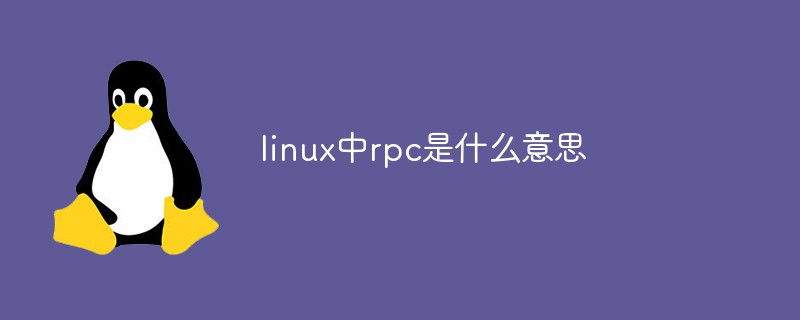 Operation and Maintenance
Operation and Maintenance Linux Operation and Maintenance
Linux Operation and Maintenance How to use Linux for package installation and updates
How to use Linux for package installation and updatesHow to use Linux to install and update software packages
1. Introduction
Linux is a common operating system that is famous for its high flexibility, security and stability. In Linux, the installation and updating of software packages is a very important task. This article will introduce how to use Linux to install and update software packages, and provide some code examples for reference.
2. Software package manager
In Linux systems, commonly used software package management tools include:
- Debian and its derivatives (such as Ubuntu): apt-get , apt
- Red Hat and its derivatives (such as Fedora, CentOS): yum, dnf
- SUSE Linux and its derivatives: zypper
- Arch Linux and its derivatives :pacman
This article will take Debian and its derivatives (such as Ubuntu) as an example.
3. Software package installation
-
Use apt-get command to install:
sudo apt-get install package_name
For example, to install a commonly used text editor Vim, you can run the following command:
sudo apt-get install vim
-
Use the apt command to install:
sudo apt install package_name
Compared with apt-get, the apt command provides a more user-friendly interface. For example, take the above Vim as an example:
sudo apt install vim
Whether you use the apt-get or apt command, the system will automatically resolve the dependencies between software packages. If other packages are required dependencies for the installation, these dependencies will be installed automatically.
4. Software package update
-
Use apt-get command to update:
sudo apt-get update sudo apt-get upgrade
First run apt-get update command, which updates the package list. Then run the apt-get upgrade command, which will upgrade all available packages.
-
Use apt command to update:
sudo apt update sudo apt upgrade
Compared with apt-get, apt command provides a more user-friendly interface. Run the above two commands and the system will automatically upgrade all available software packages.
The above command will update the software packages in the system to the latest version. If there are some specific software packages in the system that you do not want to upgrade, you can use the following methods to limit them.
-
Use the apt-mark command to keep the software package from being upgraded:
sudo apt-mark hold package_name
For example, to keep the Vim software package from being upgraded:
sudo apt-mark hold vim
-
Use the apt-mark command to release the hold:
sudo apt-mark unhold package_name
For example, to release the hold of the Vim software package:
sudo apt-mark unhold vim
5. Other commonly used commands
-
Install software package source:
Sometimes, the system default software source does not contain the required software package. Additional software sources can be added using the following command:sudo add-apt-repository repository_name
-
Search for packages:
To search for a specific package, you can use the following command:apt-cache search keyword
For example , to search for a software package named "apache":
apt-cache search apache
-
Delete a software package:
To delete unnecessary software packages, you can use the following command:sudo apt-get remove package_name
For example, to delete the Apache software package:
sudo apt-get remove apache2
6. Summary
This article introduces how to use Linux to install and update software packages, and provides relevant code examples . In actual use, you can choose the appropriate package manager and command to operate according to your own needs. At the same time, other commonly used commands are also introduced, such as adding software package sources, searching for software packages, and deleting software packages. I hope this article will be helpful to everyone and allow you to better use Linux for software package management.
The above is the detailed content of How to use Linux for package installation and updates. For more information, please follow other related articles on the PHP Chinese website!
 什么是linux设备节点Apr 18, 2022 pm 08:10 PM
什么是linux设备节点Apr 18, 2022 pm 08:10 PMlinux设备节点是应用程序和设备驱动程序沟通的一个桥梁;设备节点被创建在“/dev”,是连接内核与用户层的枢纽,相当于硬盘的inode一样的东西,记录了硬件设备的位置和信息。设备节点使用户可以与内核进行硬件的沟通,读写设备以及其他的操作。
 Linux中open和fopen的区别有哪些Apr 29, 2022 pm 06:57 PM
Linux中open和fopen的区别有哪些Apr 29, 2022 pm 06:57 PM区别:1、open是UNIX系统调用函数,而fopen是ANSIC标准中的C语言库函数;2、open的移植性没fopen好;3、fopen只能操纵普通正规文件,而open可以操作普通文件、网络套接字等;4、open无缓冲,fopen有缓冲。
 linux中什么叫端口映射May 09, 2022 pm 01:49 PM
linux中什么叫端口映射May 09, 2022 pm 01:49 PM端口映射又称端口转发,是指将外部主机的IP地址的端口映射到Intranet中的一台计算机,当用户访问外网IP的这个端口时,服务器自动将请求映射到对应局域网内部的机器上;可以通过使用动态或固定的公共网络IP路由ADSL宽带路由器来实现。
 linux中eof是什么May 07, 2022 pm 04:26 PM
linux中eof是什么May 07, 2022 pm 04:26 PM在linux中,eof是自定义终止符,是“END Of File”的缩写;因为是自定义的终止符,所以eof就不是固定的,可以随意的设置别名,linux中按“ctrl+d”就代表eof,eof一般会配合cat命令用于多行文本输出,指文件末尾。
 linux怎么判断pcre是否安装May 09, 2022 pm 04:14 PM
linux怎么判断pcre是否安装May 09, 2022 pm 04:14 PM在linux中,可以利用“rpm -qa pcre”命令判断pcre是否安装;rpm命令专门用于管理各项套件,使用该命令后,若结果中出现pcre的版本信息,则表示pcre已经安装,若没有出现版本信息,则表示没有安装pcre。
 什么是linux交叉编译Apr 29, 2022 pm 06:47 PM
什么是linux交叉编译Apr 29, 2022 pm 06:47 PM在linux中,交叉编译是指在一个平台上生成另一个平台上的可执行代码,即编译源代码的平台和执行源代码编译后程序的平台是两个不同的平台。使用交叉编译的原因:1、目标系统没有能力在其上进行本地编译;2、有能力进行源代码编译的平台与目标平台不同。
 linux怎么查询mac地址Apr 24, 2022 pm 08:01 PM
linux怎么查询mac地址Apr 24, 2022 pm 08:01 PMlinux查询mac地址的方法:1、打开系统,在桌面中点击鼠标右键,选择“打开终端”;2、在终端中,执行“ifconfig”命令,查看输出结果,在输出信息第四行中紧跟“ether”单词后的字符串就是mac地址。
 linux中rpc是什么意思May 07, 2022 pm 04:48 PM
linux中rpc是什么意思May 07, 2022 pm 04:48 PM在linux中,rpc是远程过程调用的意思,是Reomote Procedure Call的缩写,特指一种隐藏了过程调用时实际通信细节的IPC方法;linux中通过RPC可以充分利用非共享内存的多处理器环境,提高系统资源的利用率。


Hot AI Tools

Undresser.AI Undress
AI-powered app for creating realistic nude photos

AI Clothes Remover
Online AI tool for removing clothes from photos.

Undress AI Tool
Undress images for free

Clothoff.io
AI clothes remover

AI Hentai Generator
Generate AI Hentai for free.

Hot Article

Hot Tools

VSCode Windows 64-bit Download
A free and powerful IDE editor launched by Microsoft

PhpStorm Mac version
The latest (2018.2.1) professional PHP integrated development tool

DVWA
Damn Vulnerable Web App (DVWA) is a PHP/MySQL web application that is very vulnerable. Its main goals are to be an aid for security professionals to test their skills and tools in a legal environment, to help web developers better understand the process of securing web applications, and to help teachers/students teach/learn in a classroom environment Web application security. The goal of DVWA is to practice some of the most common web vulnerabilities through a simple and straightforward interface, with varying degrees of difficulty. Please note that this software

Zend Studio 13.0.1
Powerful PHP integrated development environment

EditPlus Chinese cracked version
Small size, syntax highlighting, does not support code prompt function





